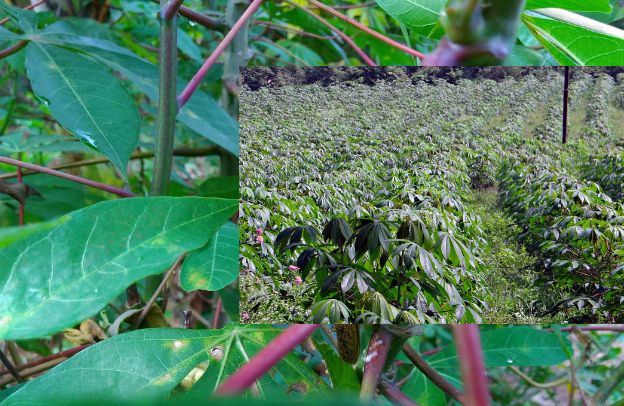Cassava Farming for Climate Resilience: A Game-Changer for Nigerian Agriculture and Diaspora Investment

Imagine standing on a once-fertile cassava farm in Nigeria, only to see cracked soil, yellowing leaves, and a harvest far smaller than expected. The air is thick with uncertainty as farmers gather under the shade of a tree, their voices filled with concern. They talk about how erratic rainfall, prolonged dry spells, and the relentless invasion of pests have turned each planting season into a gamble. The patterns they once relied on have become unpredictable, leaving them at the mercy of an ever-changing climate.
Learn How to Leverage Your Story through our Story to Asset Framework.
Could this be the beginning of a crisis that threatens not just Nigeria’s food security but also the livelihoods of millions who depend on agriculture for survival? Or is it a turning point, an opportunity to rethink farming methods, embrace innovation, and revolutionize the way cassava is grown?
Can this challenge be met with climate-smart strategies that will ensure food resilience, economic stability, and prosperity for future generations?
If you are part of the African diaspora with an interest in agribusiness, you are uniquely positioned to drive this transformation. With your global exposure, financial resources, and access to cutting-edge agricultural innovations, you can play a critical role in strengthening Nigeria’s cassava industry.
Climate-resilient cassava farming is not just about survival, it’s about sustainability, profitability, and long-term impact. It’s about securing food for millions while creating economic opportunities that empower smallholder farmers and agribusiness entrepreneurs alike.
Nigeria is already the world’s largest cassava producer, harvesting over 60 million metric tons annually (FAO, 2023). Yet, much of this potential remains untapped due to climate-related threats and inefficiencies in production and processing. With the right investments, technological advancements, and strategic partnerships, cassava farming can become a driver of sustainable development, positioning Nigeria as a global leader in the cassava value chain.
But how do you, as an entrepreneur, investor, or advocate, contribute to this vision? What practical steps can be taken to secure a climate-resilient future for cassava farming in Nigeria? Let’s explore the science-backed strategies that will define the future of agribusiness and unlock new economic opportunities for the African diaspora.
Understanding Climate-Resilient Farming: A Lifeline for Smallholder Farmers
Climate-resilient farming is a set of agricultural practices designed to withstand and adapt to climate change’s disruptive effects. It’s a proactive approach that focuses on improving soil health, conserving water, diversifying crops, and using sustainable farming techniques to protect yields and livelihoods.
Why Cassava? The Crop of the Future
Cassava has long been considered Africa’s “hunger crop” due to its ability to grow in poor soil and withstand harsh conditions. Yet, climate change is pushing this resilience to its limits. Increased heat, unpredictable rainfall, and new pest infestations threaten its production. Despite these challenges, cassava remains an economic powerhouse, a key ingredient in food products, biofuels, and industrial starch used worldwide.
The demand for cassava-based products, including cassava flour as a gluten-free alternative to wheat, is growing.
The African diaspora, especially in the U.S. and Europe, represents a significant consumer base for these products, with the global gluten-free market expected to surpass $8.3 billion by 2026 (Statista, 2024). This presents an unprecedented opportunity for investment and innovation.
Strategies for Climate-Resilient Cassava Farming
The key to sustaining cassava farming amid climate uncertainty lies in adopting climate-smart agricultural strategies. These strategies not only increase yield and farm profitability but also ensure long-term sustainability.
See also Amaka Ifeduba on Agricultural Development and Youth Empowerment
1. Crop Diversification: Reducing Risks Through Variety
Monocropping and planting the same crop repeatedly exhausts soil nutrients and increases vulnerability to pests and disease. Diversifying crop production ensures food security and strengthens farm resilience.
- Solution: Intercrop cassava with nitrogen-fixing legumes like cowpea or pigeon pea to enhance soil fertility.
- Impact: Studies from the International Institute of Tropical Agriculture (IITA) show that intercropping cassava with legumes can increase yield by up to 30% (IITA, 2023].
2. Water Management: Harvesting Every Drop
Erratic rainfall patterns have made traditional water-reliant farming increasingly difficult. Efficient irrigation and water conservation techniques are essential to climate adaptation.
- Solution: Implement drip irrigation systems and rainwater harvesting techniques to optimize water use.
- Impact: Drip irrigation can increase cassava yields by up to 50% while using significantly less water (World Bank, 2023)
3. Soil Health and Conservation: The Foundation of Resilience
Depleted soil results in lower yields and higher vulnerability to drought. Maintaining soil fertility is key to sustaining productivity.
- Solution: Use organic compost, biochar, and cover crops to enhance soil moisture retention.
- Impact: Research indicates that biochar can improve soil carbon levels by 25%, reducing soil degradation (FAO, 2023]
4. Pest and Disease Control: Fighting the Invisible Threats
Climate change has led to an increase in cassava diseases such as Cassava Mosaic Virus and Cassava Brown Streak Disease. Without intervention, these diseases can wipe out entire farms.
- Solution: Adopt Integrated Pest Management (IPM) techniques, including biological pest control and disease-resistant cassava varieties.
- Impact: The use of resistant cassava varieties developed by IITA has been shown to reduce crop losses by up to 40% (IITA, 2023).
5. Technology and Innovation: Smart Farming for the Future
Agricultural technology (AgriTech) is transforming farming efficiency, making it more sustainable and climate resilient.
- Solution: Use mobile weather forecasting apps to plan optimal planting and harvesting times.
- Impact: A study by the African Development Bank (AfDB) found that using mobile agricultural advisories helped farmers increase their income by 20% due to better decision-making (AfDB, 2024).
Overcoming Barriers to Climate-Resilient Farming
Building climate resilience in farming demands significant changes across production, storage, processing, and marketing systems—transformations that farmers may struggle to implement without additional investment.
However, enhancing resilience not only stabilizes crop yields and incomes but also strengthens food security by improving the quality of diets. Overcoming these barriers is key to ensuring long-term sustainability and prosperity for farmers while helping to mitigate the impacts of climate change on agriculture. Now, here are some considerations:
1. Limited Access to Finance and Investment
A major challenge for smallholder farmers is accessing funds to implement climate-smart techniques. However, the African diaspora can bridge this gap by supporting agribusiness investment.
- Solution: Diaspora-led agricultural investment funds can provide low-interest loans to farmers.
- Impact: The Diaspora Investment in Agriculture (DIA) initiative by the International Fund for Agricultural Development (IFAD) has successfully mobilized over $100 million in diaspora-driven agricultural investments (IFAD, 2024)
2. Policy and Government Support
Inconsistent policies and inadequate rural infrastructure make large-scale climate adaptation difficult.
- Solution: Advocacy for stronger policies, public-private partnerships, and infrastructure improvements.
- Impact: Programs like Nigeria’s Anchor Borrowers’ Programme (ABP) have helped boost cassava production by 60% in participating states (CBN, 2023)
3. Market Access for Cassava Products
For cassava farming to be profitable, farmers must access both local and international markets.
- Solution: Establish processing hubs to convert raw cassava into high-value products like cassava flour, starch, and bioethanol.
- Impact: Expanding cassava processing could increase Nigeria’s agricultural GDP by $2 billion annually (FAO, 2023].
The African Diaspora’s Role in Agribusiness Transformation
If you are part of the African diaspora, your involvement in Nigerian agribusiness can be transformative. Whether through direct investment, knowledge transfer, or market linkages, you can help scale up climate-smart farming practices.
Opportunities for Diaspora Entrepreneurs:
- Establish agribusiness startups focusing on cassava value-added products.
- Invest in digital tools that provide farmers with real-time climate and market data.
- Partner with local cooperatives to support sustainable farming initiatives.
By leveraging your resources, expertise, and networks, you can help build a resilient, food-secure Nigeria while tapping into a highly profitable market.
Conclusion: Will You Be Part of the Solution?
Nigeria’s cassava industry is at a crossroads. The effects of climate change are undeniable, but so are the opportunities to build resilience through innovation, investment, and smart farming techniques. The African diaspora has a unique role to play in shaping the future of agribusiness, not just as investors, but as catalysts for sustainable development.
So, the question remains: Will you seize this opportunity to invest in climate-resilient cassava farming and contribute to Africa’s agricultural renaissance?
The future of food security, economic growth, and sustainability is in your hands. The time to act is now.
Learn How to Leverage Your Story through our Story to Asset Framework.





